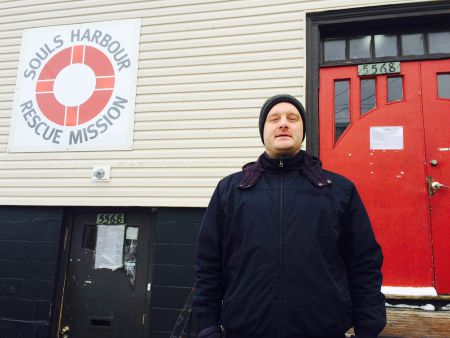KJIPUKTIK (Halifax) - Many of the poor people that I know are willing to do what it takes to improve their incomes and living situations. For some that means being a poverty activist and protesting at Province House, for others it means trying very hard to find a job, and for others again it means going back to school.
For other people living in poverty things are more complicated.
Maybe more than half the people I talk to who are on social assistance tell me that they want to start going to the employment centres to look for work, or go back to school.
But they also tell me they wished there was a way they could regain their strength, energy, confidence, and motivation first.
Of course each case is different.
Things have happened to them that caused them to have trust issues with society and to this day they are still suffering mental trauma from what happened. Or Community Services has made them feel less worthy after getting on social assistance and that in turn has caused them to lose energy and hope.
I think there is a way out. I began to talk about it in my previous article Join Team Kendall Worth.
The program I am proposing would work like a school/health education centre that people living in poverty could attend. Courses and training would be offered to teach them to cure their mental trauma, rebuild energy, rebuild motivation, rebuild trust with society and relearn skills they might have known in the past that they might have forgotten.
What needs to be understood is that unlike a regular school, the people who go to this program will go to it because they are trying to rebuild the energy which they once had.
For this reason the school would need to offer workshops and courses building confidence and self esteem.
There will be healthy cooking classes and free lunch program for those who participate. Eating a healthy diet is a vital part of regaining lost energy.
There would be physical fitness and recreation classes or workshops as well. Regular exercise and playing sports are a part of keeping motivated and regaining motivational skills.
One thing to keep in mind: people on low income cannot afford gym passes and passes to indoor swimming pools. The Department of Community Services will not cover the cost of either for people on social assistance.
I am a good swimmer and I find that swimming is very therapeutic. Therefore if I had the opportunity to get this program up and running, I would try to make a deal with a local indoor swimming pool to see if once a week I could rent their pool to get the clients of the program out swimming. For those who do not know how to swim, teaching them to swim could be a part of the program.
So who are these people that would benefit from these kinds of classes and what happened to their confidence and energy?
Based on my conversations at the places I mentioned in my story Down and Out in Halifax and Dartmouth I would suggest the following:
Each case is different. And it is outright difficult to give statistics as to how many people live in poverty through no fault of their own.
Sometimes I hear from people who got themselves into trouble with the law. They find it very hard to take responsibility for what they did, and they tell me that because of what happened they actually lost trust with general society—they lost energy to start once again contributing to society because of the mental trauma they had developed.
And of course often people live in poverty because they live with disabilities and mental health issues. Also I have talked to some who tell me they are victims of domestic violence that causes them the mental trauma.
Overall the loss of energy they experience is caused by emotional pain as well physical pain caused in their lifetime.
It’s not something the various employment centres and agencies located in HRM are addressing.
The program I am proposing in this article would fill that gap and help them overcome these personal issues so they can start approaching the employment agencies, GED upgrading opportunities and trainings that are out there.



